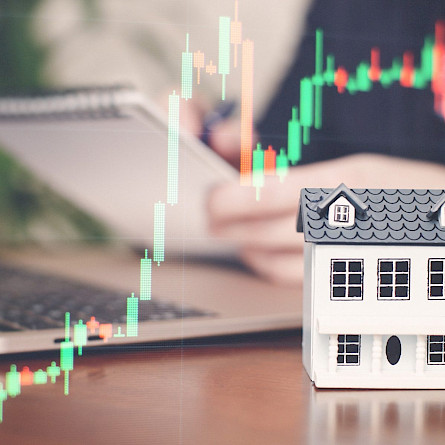It was at this point that he told me this: “I invest mainly in real estate, and I am very satisfied with it. I don’t like the stock market because its returns are not as attractive as those of the real estate market. We just have to look at what’s happening these days and I’m glad I chose real estate. Unlike the stock market, real estate does not fall!”
I have nothing against the real estate market. On the contrary, I know full well that many Quebec investors have made their fortune there in recent decades. In fact, many of our investor clients have made a good part of their money in the real estate market and can now afford to diversify their investments in the stock market. For those who have knowledge in the field, who are patient and who are ready to get their hands dirty, the real estate market is undoubtedly a very attractive vehicle for long-term enrichment.
Personally, I have always preferred stock market investment to real estate investment for at least two reasons: 1- I have been involved in it since I was very young; it is therefore a market that I understand better than that of real estate; 2- I have never been very good with my hands! I don’t see myself fixing a leaking toilet or adjusting a door that doesn’t close properly. Maybe stock market investing lends itself better to my inherently lazy character!
As for long-term returns, I find it hard to believe the real estate market outperforms the stock market. I know for a fact that the stock market has delivered a compound annual return of almost 10% over the past 100 years without resorting to debt leverage. In my opinion, it is possible to obtain similar returns in real estate, especially if you know how to buy at the right times, but probably not without resorting to debt.
As for the perception that real estate values cannot fall, I believe that this is both an illusion and a danger. As with stocks, real estate prices also undergo regular corrections. I am also convinced that the prices of most real estate properties have undergone a good correction in recent quarters while interest rates have increased considerably. An economic downturn will also have a negative impact on the value of most real estate values.
This perception that real estate prices cannot fall comes, in my opinion, from a reality specific to the real estate market that is very different from the stock market: we do not know the price of our properties in real time, every minute or every day, as is the case of the stock market. The value of most homes has most likely been corrected in recent months, but that doesn’t stress many people since we don’t see it automatically. On the stock market, you see the value of your portfolio collapse in real time!
Although I prefer the stock market, both the real estate and stock markets are attractive to the long-term investor. In my opinion, the main advantage of real estate is that most investors approach it with a long-term horizon, which is certainly not the case for all stock market investors. This advantage probably stems from the fact that real estate prices cannot be followed in real time and that it is much harder to buy and sell real estate than a stock market share.
If we succeed in transposing this ability to think in the long term to the stock market, despite all its incentives to make us short-term investors, it becomes, in my opinion, even more profitable than real estate.





